The Saint Charles Hotel – there have been three of them, and all at 201 St. Charles Avenue, New Orleans, Louisiana. A half-century ago, The Times-Picayune eulogized the hotel thusly: “The St. Charles Hotel, born of progress 1835, died of obsolescence 1974, and will be survived by its spirit.”
That St. Charles Avenue address is where the original St. Charles Hotel was built and once upon a time it was so famous it didn’t need an address. It was known to everyone far and wide simply as the St. Charles Hotel.
For years, the stately hotel stood as a posh New Orleans landmark founded by a group of local investors with the goal of creating the finest hotel in the world. If they didn’t achieve their goal, they came close.
Completed in 1837 with a Greek-inspired façade, the five-story hotel boasted an eye-catching row of 14 massive Corinthian columns out front and a 180-foot domed cupola reminiscent of that on the U.S. Capitol. It quickly became a center of activity for what was then a booming New Orleans.
Then, just before noon on January 17, 1851, disaster struck. Fire broke out just beneath the roofline. There were no hoses capable of reaching the blaze and the fire spread quickly. And then it got worse, around 1 PM the cupola collapsed. Within a half-hour, the whole building was engulfed in flames. The next day, a few broken columns and a couple tottering walls were all that was left. The Picayune declared it “the greatest calamity our city ever suffered.”
There was little choice but to rebuild. Construction of a new hotel was completed two years later on January 24, 1853. It was built in the same style as the first, minus the cupola, and would regain the same stature.

Image is from a cell of a stereoscope view card,
It would also suffer the same fate, burning in what began as a late-night kitchen fire in April 1894. Once more, it was a complete loss. And once more it was rebuilt – fireproof this time, standing seven stories on a steel structure. It was built in the Italian Renaissance style, complete with a red-brick façade trimmed in terra cotta. It re-opened in 1896. A Common Street annex was added in 1897 and a 12-story Gravier Street tower further expanded the hotel’s footprint in 1903.
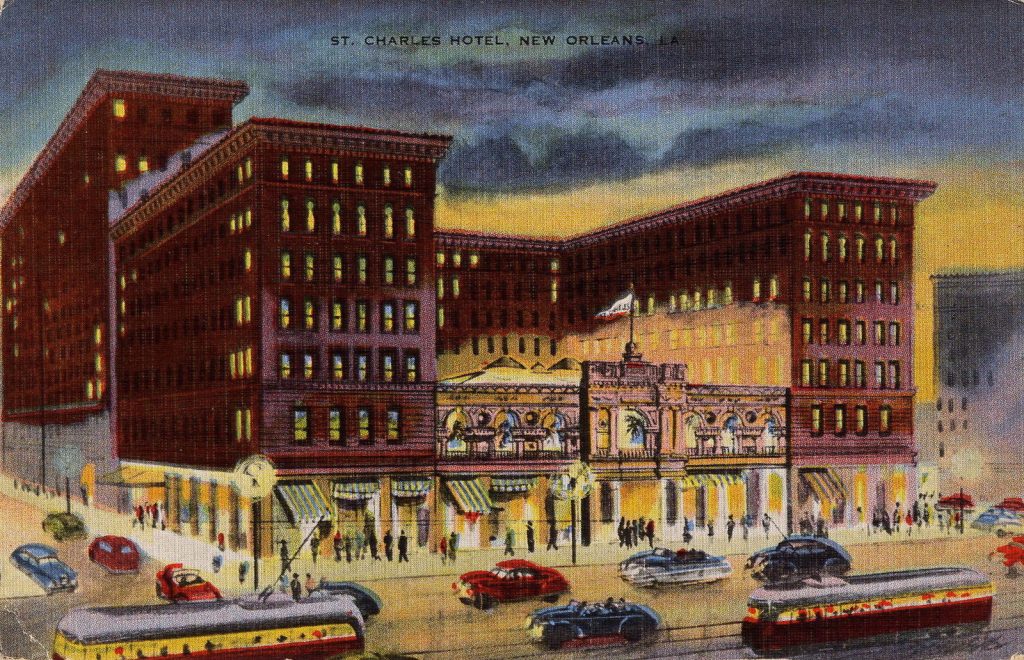
While it looked different than its two predecessors, it was similar in that no luxury was spared, including the interior decorations. During the initial planning for the reconstruction the decision was made by an on-staff interior designer to hire a team of local artists to work as a cadre-of-purpose and prepare hundreds of original oil paintings, watercolors, and gouache pictures for use in the major rooms of the new hotel.
The date is somewhat in question, but it is thought that between 1915 and 1924, twelve of the original art works were photographed and made into a set of postcards that were sold in the hotel giftshop.
Saint Charles’s reputation drew a parade of notable guests over the years, from Gary Cooper to the Duke and Duchess of Windsor, but finally, in October 1974, the hotel closed for good. It wasn’t fire this time; it was a wrecking ball.
Sadly, 201 Saint Charles Avenue sat as an empty lot for the next decade, but “Place Saint Charles” was built at that address in 1984.
***
[ATTENTION: Readers.
If you wish, click on the images above for an enlarged version.]
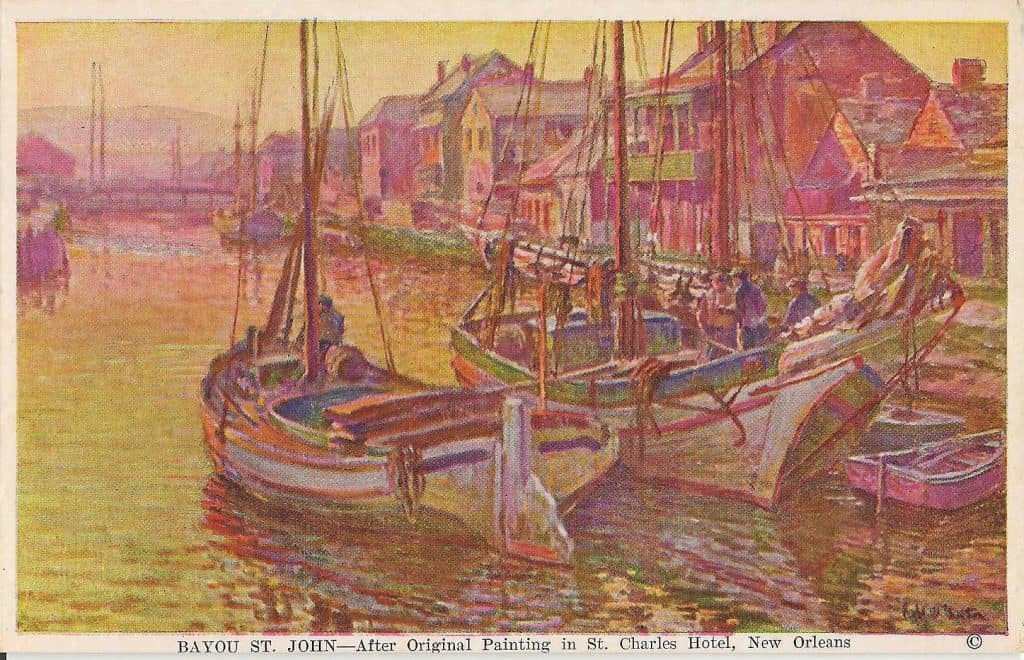
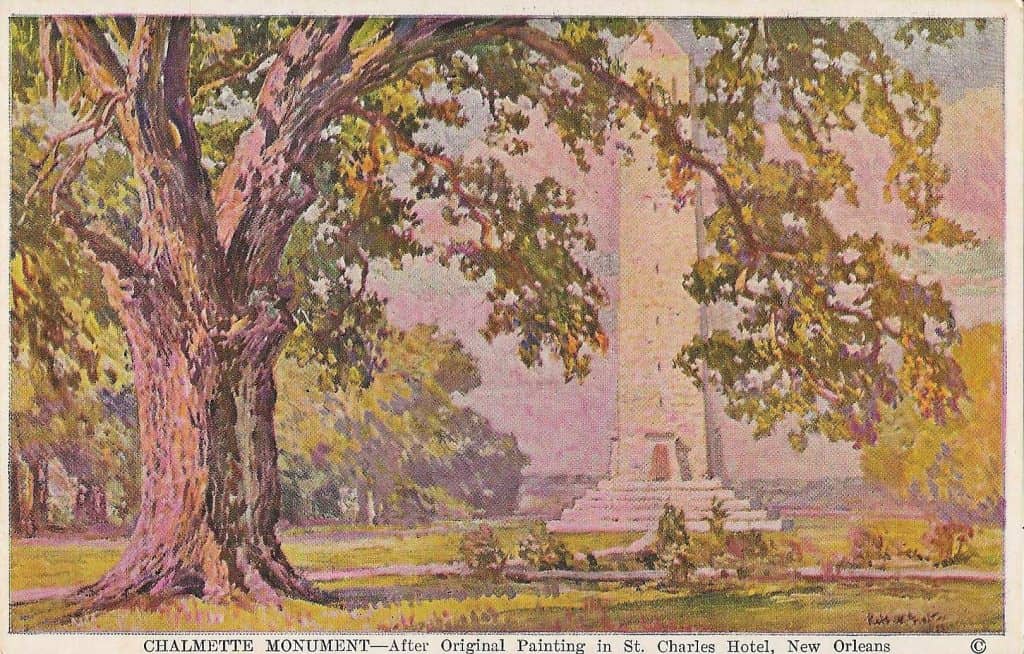
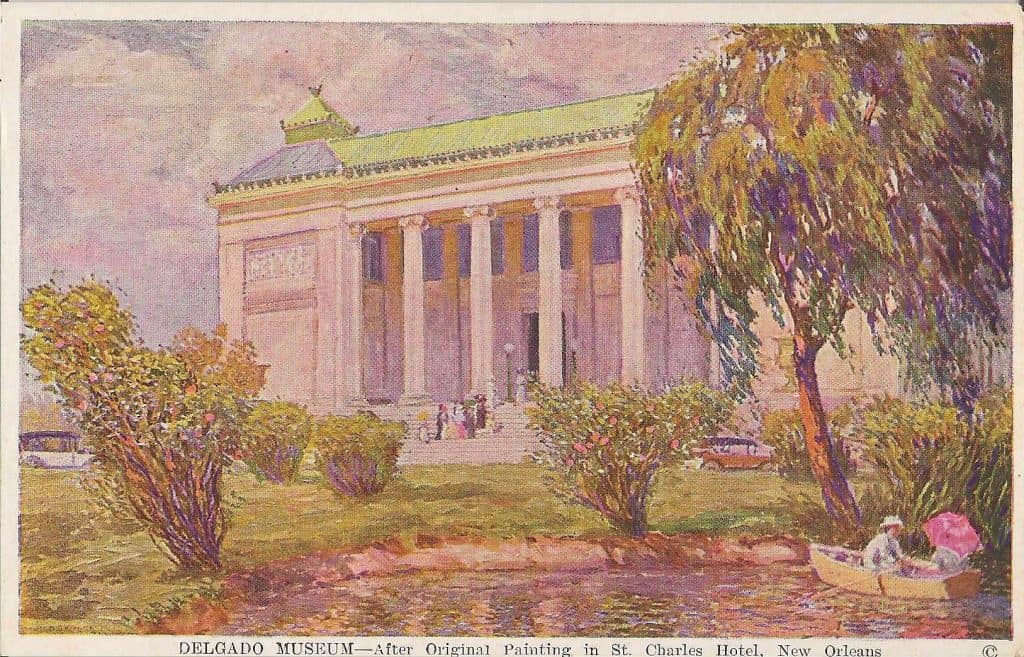
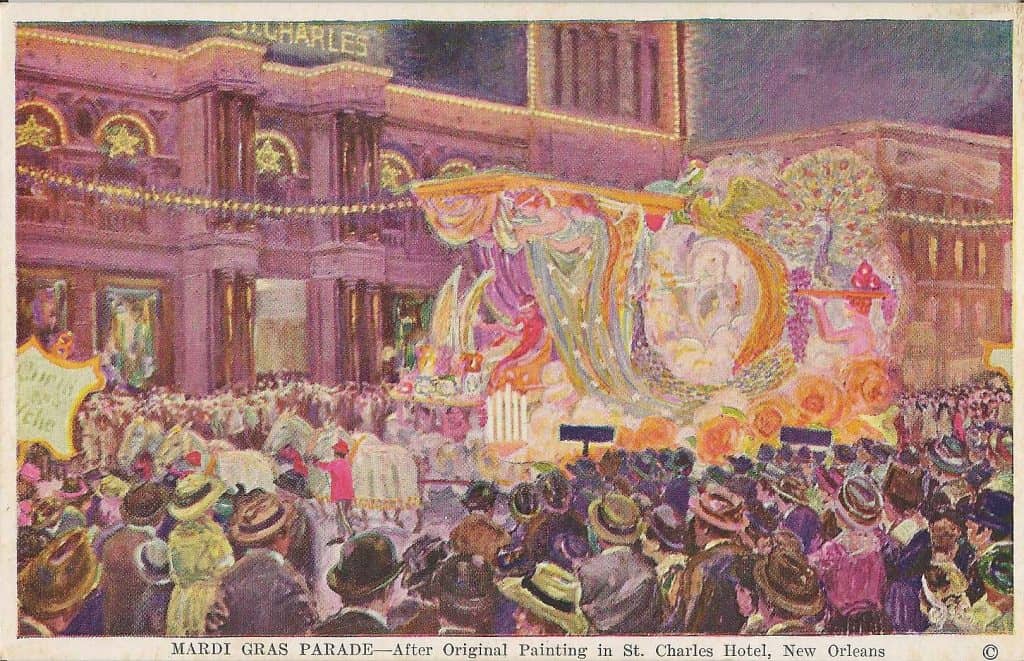
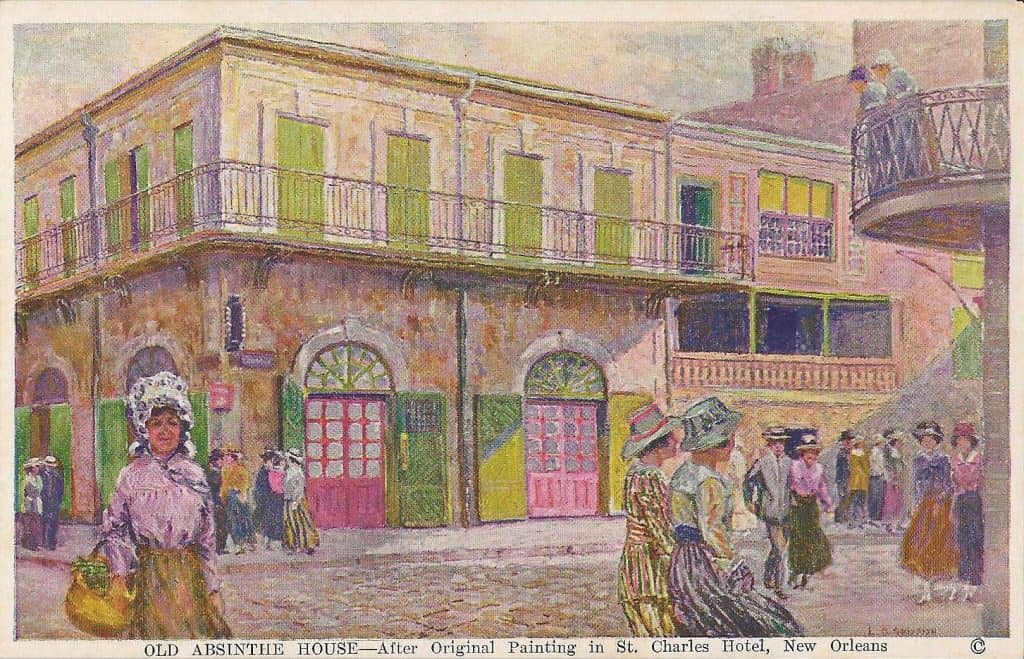
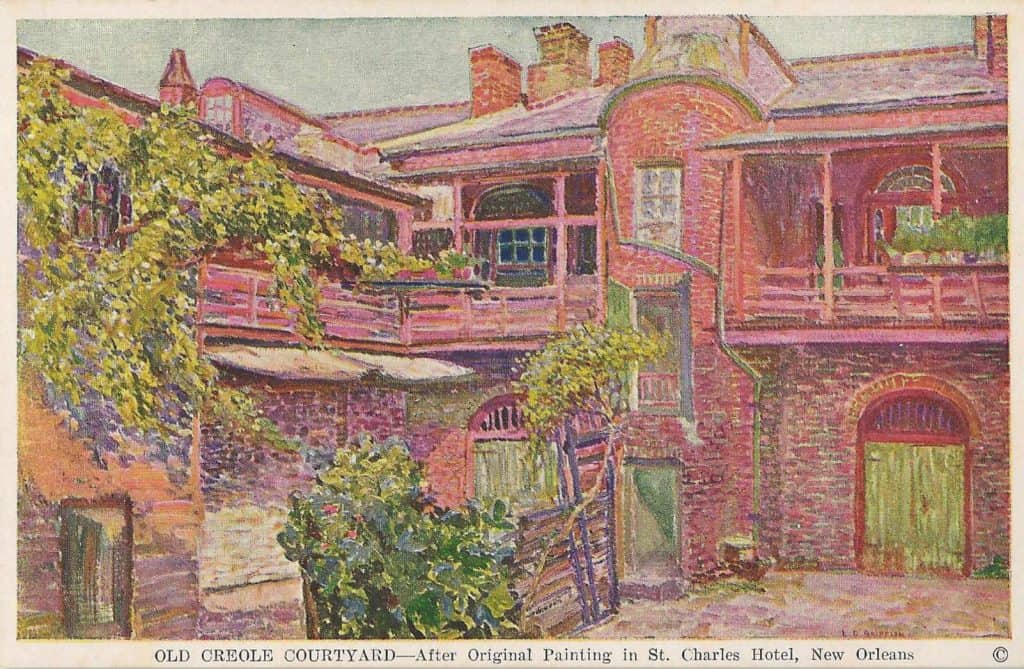
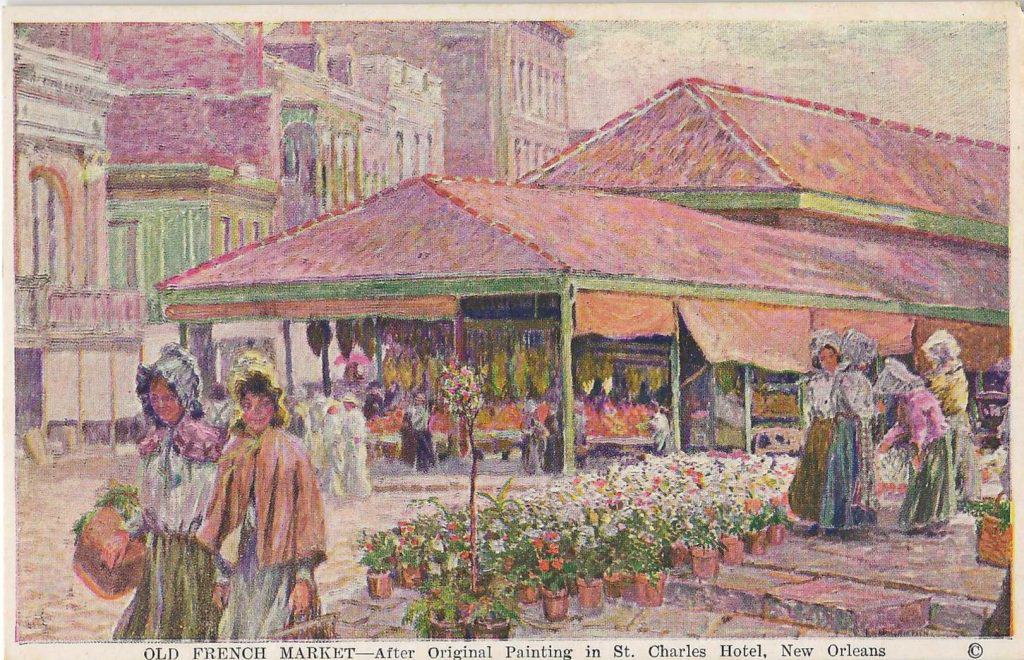
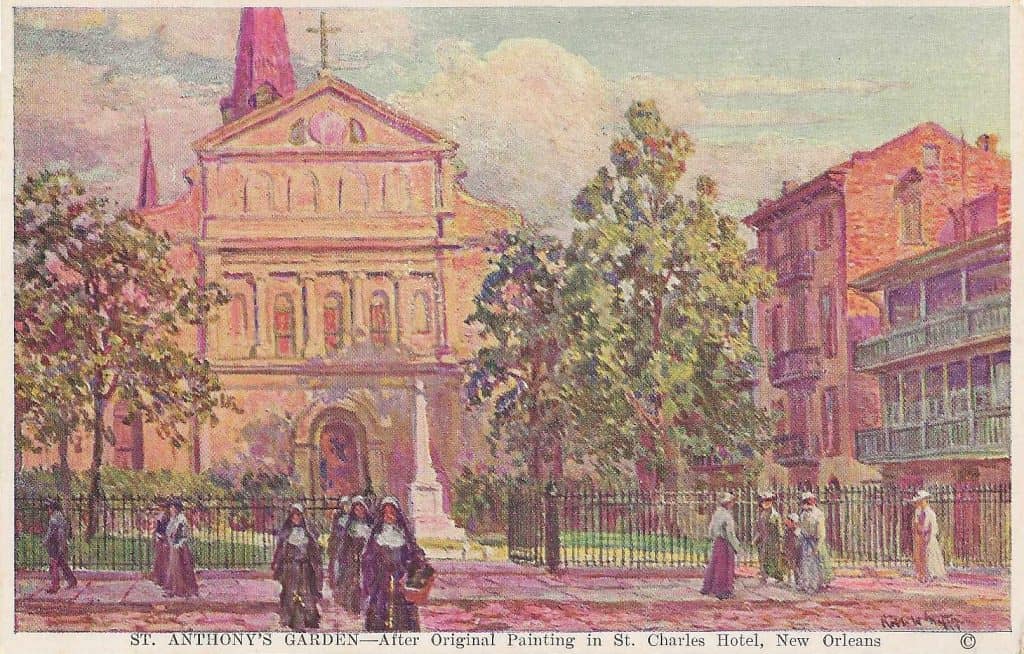
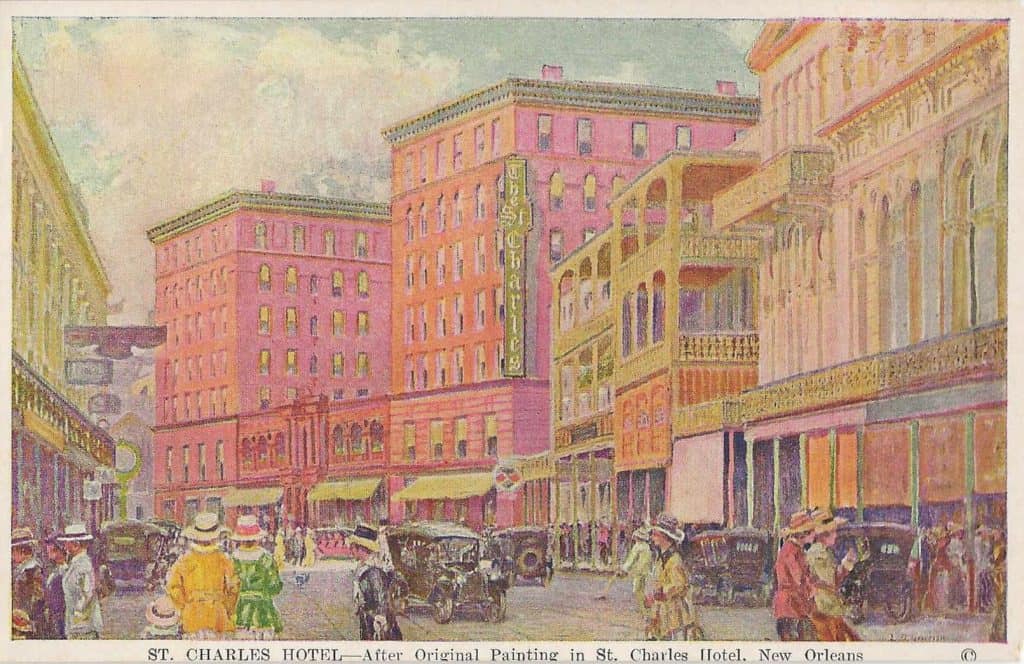
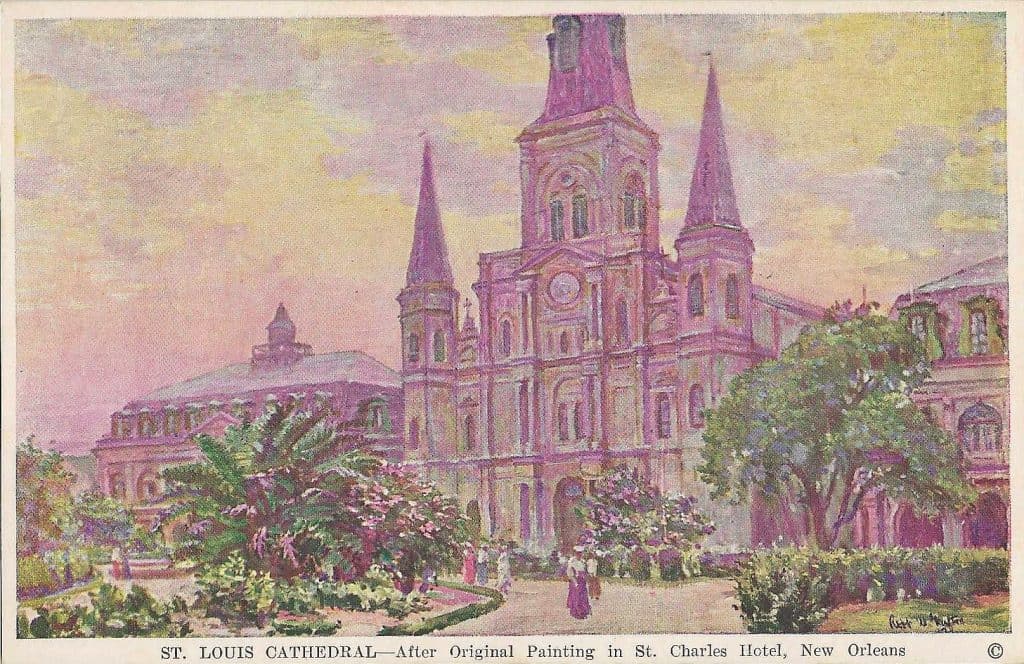
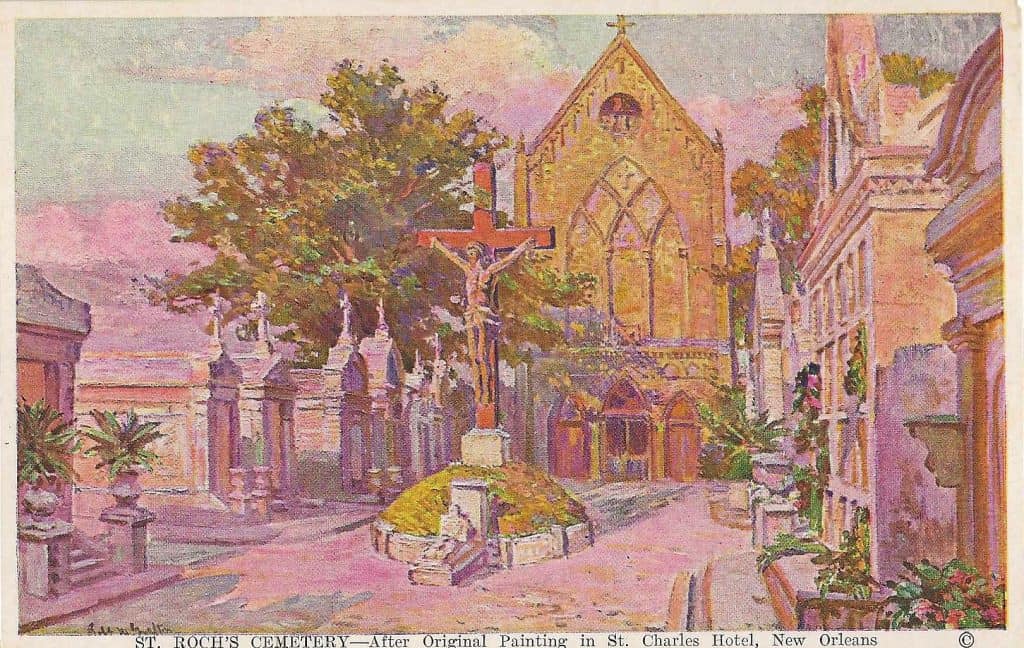
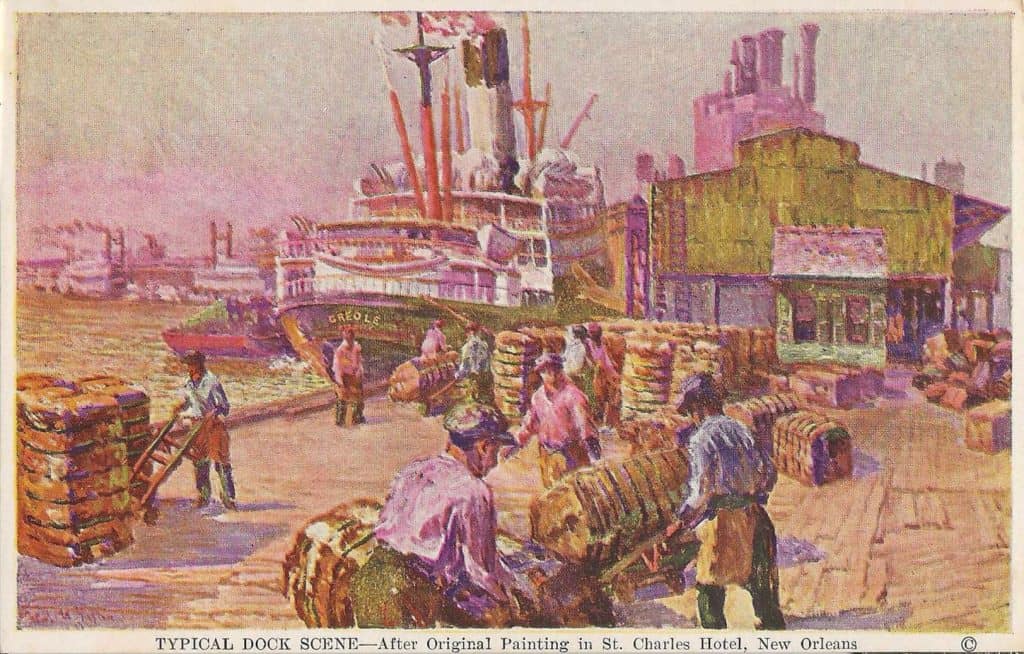
Great article. What happened to the original paintings and watercolors?
ap
I’ve never been to New Orleans, but one of my aunts loved the trip she took to the city in the late 1980’s, and my mother often told the story of getting off a train in “The Big Easy” back in the fifties and making a beeline for the ladies’ restroom, only to realize she had accidentally entered the facility reserved for “colored” women. Mom had grown up in Michigan and Ohio, but was familiar with segregation after spending summer vacations in Baltimore.
I know what it means to “miss New Orleans” So many wonderful places to see and to eat!
Agree… great story made even better by the illustrative cards. But, why did it close in 1974? And, is “Place St. Charles” another hotel or ?